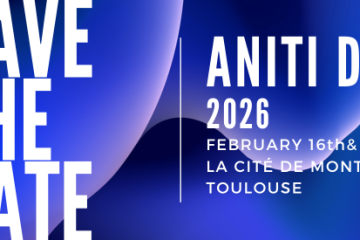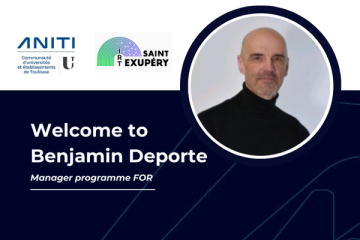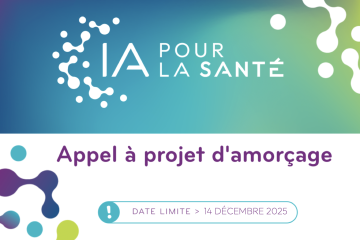The International Day of Women and Girls in Science, celebrated annually on February 11, was adopted by the United Nations General Assembly to promote access to full and equitable participation of women and girls in science.
This day serves reminds us that women and girls play an essential role in the scientific and technological community and that their participation must be strengthened. The celebration is led by UNESCO and UN- Women, in collaboration with institutions and civil society partners which promote access to science for women and girls and their participation in science.
On this occasion, women and girls in science who are members of ANITI tell us about their background, their career choices and their role within the scientific community.
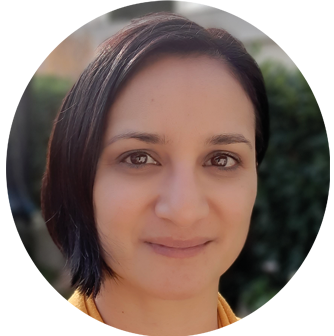
Elodie Chanthery
Turning to science was not an obvious choice because I loved both letters and science. The sciences imposed themselves because they offered me a much larger playground meeting my needs and tastes.
I like the “solving puzzles, unsolved problems” side of science, and my job as a researcher responds very well to this interest.I am an assistant professor at INSA Toulouse and a researcher at LAAS and ANITI. On the teaching side, I think I bring a modern approach to teaching. I am very invested in active and plural teaching approaches. For example, I develop courses with more student participation, or teaching methods through games. I also participated in popular science activities, by developing an escape game on artificial intelligence that is played in high schools. I think it is very important that everyone is trained and can have an informed opinion on the technologies that surround us today.
On the research side, I try to work on scientific subjects that make sense to me, even if it's not always easy: making systems safer by increasing their autonomy, facilitating operator decision-making, giving advice for the maintenance of systems so that their lifespan is as long as possible, extending the lifespan of batteries... I try to do this with the most honest and ethical approach as possible, by questioning myself about the purpose of my research , in particular by asking me by whom and for what purpose they are used. I try to train the students around me (students, doctoral students, etc.) in this same philosophy.
Science also allows me to feel useful to society: to find solutions to improve people's lives, to make it easier, more human, greener too.
Elodie Chanthery – INSA Toulouse assistant professor, researcher at LAAS and associate researcher in the ANITI chair Synergistic transformations in model based and data based diagnosis
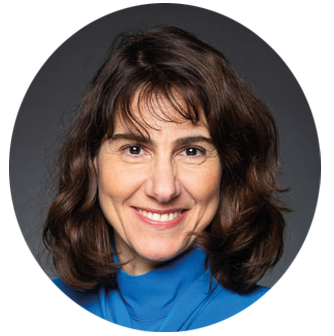
Céline Castets – Renard
I am not a scientist but a lawyer.
In terms of legal research, AI law topics are recent and in full swing. I have always wanted to work on innovative subjects, little explored until now, this is why I have been working for more than twenty years on subjects related to digital technology.
In addition, AI technologies raise many legal, but also ethical and social questions. I am more broadly interested in the social impact of these technologies and it seems to me fundamental to have a critical social look at these technologies to push for a deployment that is useful for humans but also respectful of the environment.
I think that my research in AI law and the social implications that this technology generates is useful to enlighten public decision-makers, in order to develop relevant rules for supervising AI.
It is also useful generally speaking, for people and the public who must be informed and trained on social issues, since the deployment of AI concerns the society as a whole.
It seems to me necessary to inform about the benefits but also about the risks of AI, in particular towards the most vulnerable, so that we are collectively aware of these issues and exacting on the conditions for the deployment of these technologies.
The inclusion of all is crucial to preserve our values and protect human rights.
Furthermore, AI must not only be “human-centric” in an anthropocene vision but also be in line with the sustainable development goals.
Céline Castets – Renard – Full Professor at the University of Ottawa – Holder of the chair Law, Accountability and Social Trust in AI – ANITI
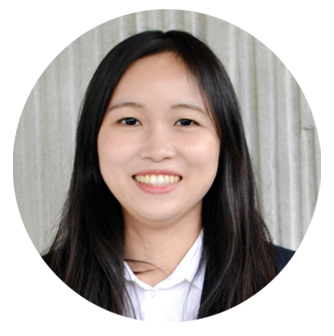
Jingling Zhang
I graduated from University Jean Jaurès last year and am now working as a research fellow in the Center for Collective Learning of ANITI.
I chose to do research because it is a career full of creativity and challenges. Doing research allows me to think about how the world works and keep testing new ideas. The most exciting thing about working in science is that you never stop learning new things and the exploration of the world makes you feel more the greatness of nature and human society.
Jingling Zhang – Research Assistant – Center for Collective Learning ANITI
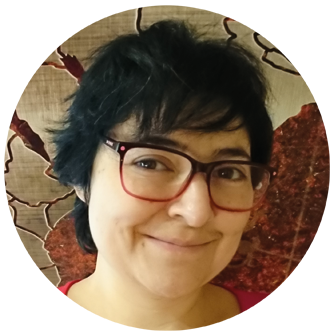
Nathalie Barbosa Roa
From a very young age, I have been curious and fascinated by the events around me, so science was an evidence.
Having the power to predict the outcome of an action, but also being able to explain the why of a phenomenon ... That's having superpowers! and who hasn't dreamed of being a superheroine or a superhero?Science is not a country, religion or certain gender matter. Science is open, without discrimination, to all!
Knowledge gives power and with great powers come great responsibilities. More than to the scientific community, scientists are dedicated to their society. Personally, I do applied science. I use AI to reduce the drudgery of recurring tasks in the industrial environment. I work on projects which improve the quality of life of workers while at the same time increasing the quality of products.
I think I bring a human-centered approach to the scientific community. We rely on human decision support rather than replacement. I hope this approach can inspire other scientists and communities around the world for a more ethical use of AI.
Nathalie Barbosa Roa – Industry 4.0 – Data Scientist chez VITESCO et co-chair Synergistic transformations in model based and data based diagnosis
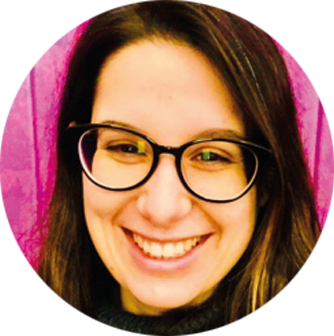
Mariana Macedo
I am Brazilian, but I have been moving around a lot. I completed my PhD in Computer Science at the University of Exeter in 2020, and I am a Postdoc at the Center for Collective Learning at ANITI (University of Toulouse).
Doing research is a natural path for those that like to study and solve complex challenges and issues. I chose Computer Science because the field teaches tools and skills to solve diverse and broad problems in society, health, politics, and economics.
As a woman in Computer Science, I am involved in outreach groups, such as Women in Network Science @WiNS_Society, and I have published in gender issues including improving breast cancer diagnosis
I model social interactions among natural and artificial agents in swarm-based algorithms to explain the emergence of complex behaviour and I am also interested in the mechanisms that might perpetuate inequality in academia and in mobility, and their implications for labor market outcomes and career opportunities
Mariana Macedo – Post – doctorante Center for Collective Learning ANITI
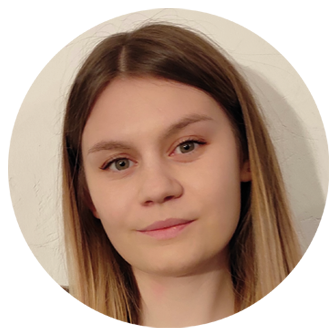
Charlotte Lacoquelle
As a child, I did not intend to study science because I was passionate about literature and languages. It was in high school, when I participated in a training course to take the Aeronautical Initiation Certificate (BIA) that I discovered aviation. Passion catcher, I knew I wanted to make it either my job or a hobby, and that for that I had to study science. I then met at a trade show a French army helicopter pilot who inspired me with her courage and determination.
Depuis, j’ai opté pour le métier d’ingénieure en mécatronique puis de chercheuse en data science. A partir du lycée il m’a fallu de la persévérance pour passer les étapes : classes préparatoires, école d’ingénieur, stages. Ces études sont non seulement exigeantes, mais elles ne sont pas non plus accueillantes pour les filles.
From my point of view, we are asked a lot more than boys. We have to prove that we deserve our place and the slightest sign of weakness we are told that we are not mentally strong enough for the job. If I wanted to do science, it was out of an interest in technology but also to have a role to play in the future of society.
As a researcher, I want to contribute on my own scale to the fields of artificial intelligence and robotization, taking into account their social and environmental impacts.
Technological choices and advancements, the development of AI models and all the other scientific today's issues must not take place without women. For this, many more young girls need to turn to science from high school and to have more women models to identify to in order to find their way.
Charlotte Lacoquelle – 1st year PhD studentre thesis cifre LAAS CNRS – VITESCO – ANITI
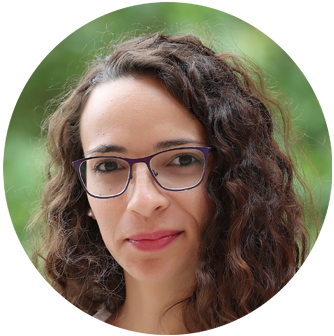
Dana Pizarro
In my case, I discovered my passion for sciences when I was in high school and I started to participate in the Math Olympiads. It was there when I realized that science is in our everyday life and we all use it. That motivated me to think about the idea of being a scientist. The decision to do my undergraduate studies in math was not easy, it is known that not everywhere scientists are recognized by their work and effort, and even more being a woman. However, I decided to take the challenge and now, after many years of that decision, I am happy and proud to have made such a decision, to have followed my passion.
My contribution is not only from the professional side, where I contribute publishing in leading journals and presenting my work in high-level conferences, but also from the social side, trying to help new generations by bringing them my personal and professional experience. To motivate and encourage young women to consider science as a career option is also part of my goals as a scientist.
My research topics are of interest to different scientific communities: Economics, Computer Science, Artificial Intelligence, Management Science, and so my work contributes to all of them. However, I think that it is also important to contribute to society. In my case in particular, my research contributes mainly to the design of algorithms and mechanisms to efficiently solve problems in which one or more agents must make a decision.
I highlight here that, although sometimes there is not a direct or explicit contribution from science to society, I believe that all scientific work contributes to the development and welfare of society
Dana Pizarro – Post-doctorante TSE – ANITI
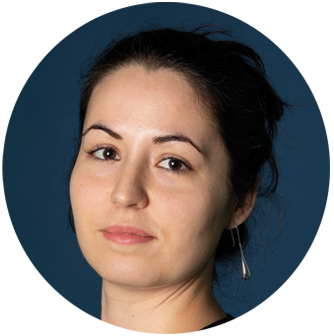
Raphaëlle Roy
J’ai fait le choix de m’orienter vers la science par curiosité, mais aussi pour l’amour des études, le goût de l’autonomie et la place laissée au doute. On dit qu’un.e scientifique est une personne qui doute.
Aujourd’hui je peux dire que, de par mon parcours et métier, je contribue à la découverte des connaissances tout en doutant et critiquant.
Raphaëlle Roy PhD – Associate Professor (tenured) of Neuroergonomics & Physiological Computing Department of Conception and Control of Aeronautical and Spatial Vehicles ISAE-SUPAERO
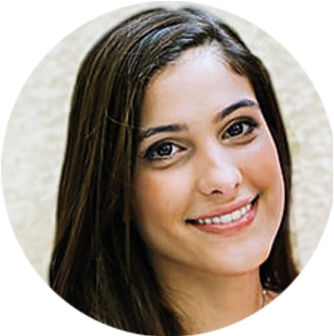
Livia Vilela Parente
Comme tout.e. autre scientiste, j’ai toujours été une curieuse, et pour les curieux, apprendre et poser les questions est un besoin.
Je pense apporter à la communauté scientifique et à la société mon envie, ma passion et cette volonté de connaitre toujours plus.
Livia Vilela Parente – Doctorante – IRIT – Continental – ANITI
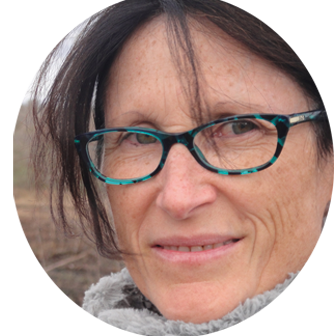
Louise Travé-Massuyès
Curiosité, envie de découvertes, envie d’exploration m’ont menées à la science. Longtemps, et en particulier quand je me suis orientée, la science a été synonyme de progrès, d’un monde meilleur. L’est-elle encore aujourd’hui ?
My contribution is a small brick to the scientific building. It participates in the advancement of knowledge, in the proposal of new technologies that society will appropriate ... for good or for bad ... who knows? it is far too early to judge as it takes hindsight to assess these things.
Louise Travé-Massuyès Research Director — LAAS CNRS – Chair on Diagnosis — ANITI
